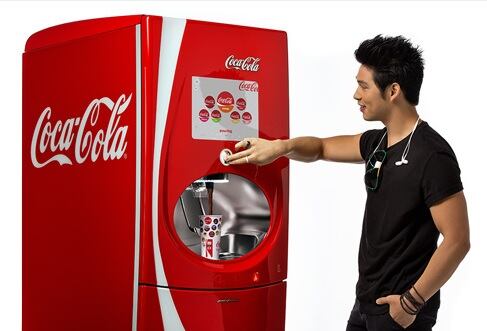It will introduce Coca-Cola Freestyle machines with reusable cups and a free water option in its dining facilities, saying the study shows how important convenience is in beverage choice.
In 2013 the University banned the sale of bottled water on campus, hoping students would adopt re-usable bottles rather than buying and disposing of plastic bottles.
But a study published in the American Journal of Public Health says the policy had unintended consequences: there was an 8% increase in bottles and a 25% increase in bottles of sugary drinks delivered to campus.
The University is one of a number of institutions to ban bottled water sales in an effort to cut back on plastic waste.
2013 bottled water sales ban
In January 2013 the University ended the sale of bottled water on campus and said that one-third of drinks from its vending machines should be healthy options. Drinking fountains were converted into bottle filling stations.
Responding to the study, the University of Vermont said, “The research points to the role convenience can play in beverage choice. The upgrades did not include making free water readily available inside the retail food outlets. Public education about beverage choices waned after the decision to end bottled water sales.
“The research findings underscore the importance of both making water a convenient choice inside dining outlets and continuing a strong public education program. Each year brings 3,000 new students who do not have the benefit of having participated in or observed the debate that went on before they arrived.”
A group of staff and students has been formed to boost education programs and make water a more convenient option in retail outlets – without increasing waste.

This month the University is introducing a new healthy beverage standard (at least 50% of beverages offered must contain 40 or fewer calories per 8 oz serve).
It will also introduce Coca-Cola Freestyle machines with reusable cups in dining outlets, with a free water option. A public information campaign will promote both reusable bottles and healthy choices.
‘Unintended consequences,’ says study
The study found an 8% increase in bottles shipped per capita between spring 2012 and spring 2013. There was also a 25% increase in bottles of sugary drinks shipped to campus, as a percent of total beverages shipped.
“Ideally, when bottled water was removed, those who previously purchased bottled water would have adjusted their behaviour and started carrying reusable water bottles,” wrote authors Elizabeth Berman and Rachel Johnson in the study.
“The university made several efforts to encourage consumers to carry reusable beverage containers. 68 water fountains on campus were retrofitted with spouts to fill reusable bottles, educational campaigns were used to inform consumers about the changes in policy, and free reusable bottles were given out at campus events.”
Although efforts may have influenced some consumers, the ban did not appear to reduce the number of waste plastic bottles, they said.
“It appears that many bottled water consumers instead decided to purchase other bottled beverages. The best result, nutritionally, would have been to select calorie- and sugar-free options, such as seltzer, unsweetened tea, or diet soda.
“However, the data suggest that some consumers increased their consumption of calorically sweetened drinks, such as soda and sports drinks, which could add to their liquid calorie and added sugars consumption, thus increasing the risk of weight gain.
“Our findings are consistent with those in literature, which shown that consumption of calories from beverages, especially sugar-sweetened beverages, has increased incrementally over the past several decades. Research also suggests that people of college age (19-39 years) have the highest consumption of bottled beverages among all age groups.
"The removal of bottled water seems to magnify the undesirable beverage consumption patterns observed in the literature and may influence people to select less healthy beverage options.
“Remembering to carry a reusable water bottle, like any other behaviour change, takes time. Therefore, long-term observations may reveal that the potential negative impact of banning bottled water on health is merely a short-term setback.”
